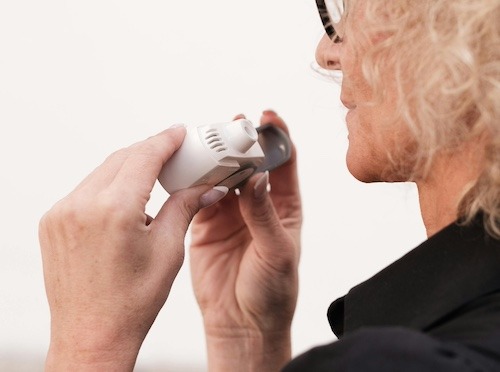If you’re considering a meaningful career in healthcare where you can make a direct impact on patients’ lives, respiratory therapy might be the perfect fit. This dynamic and growing field focuses on helping people breathe easier—literally. From emergency rooms to rehabilitation centers, respiratory therapists (RTs) play a vital role across a wide range of healthcare settings. In this guide, we’ll explore what it takes to enter this rewarding profession, answer key questions like “how long does it take to become a respiratory therapist?” and “how much do respiratory therapists make?”, and help you decide if this path aligns with your goals.

Understanding Respiratory Therapy
Respiratory therapy is a specialized healthcare discipline that addresses acute and chronic breathing disorders. Respiratory therapists work closely with patients of all ages, from premature infants with underdeveloped lungs to older adults managing chronic pulmonary diseases like COPD and asthma.
RTs are trained to perform a variety of life-saving interventions such as administering oxygen therapy, operating ventilators, and managing airway devices. They also educate patients about respiratory health and collaborate with other medical professionals to tailor treatment plans. Whether in a hospital setting or a patient’s home, RTs are on the front lines of respiratory care—improving lung function and enhancing quality of life.

How Long Does it Take to Become a Respiratory Therapist?
One of the most common questions for aspiring RTs is, “how long does it take to become a respiratory therapist?” The answer depends on your chosen educational path. Most respiratory therapists begin with an Associate of Applied Science (A.A.S.) in Respiratory Therapy, which typically takes about two years to complete. This degree prepares graduates for entry-level positions and certification exams.
Those looking to deepen their knowledge or pursue leadership roles may opt for a Bachelor of Science (B.S.) in Respiratory Therapy, which generally takes four years. Some students enter bachelor’s programs after earning their associate degree, allowing them to complete their B.S. in two additional years.
Both educational pathways require enrollment in a CoARC-accredited program, followed by passing the National Board for Respiratory Care (NBRC) exams to become a Certified Respiratory Therapist (CRT) or Registered Respiratory Therapist (RRT).
Career Opportunities and Work Environments
Once certified, respiratory therapists find employment in diverse settings. The majority work in hospitals, particularly in emergency departments and intensive care units. Others work in outpatient clinics, sleep centers, rehabilitation facilities, or provide in-home care for patients requiring long-term respiratory support.
There are also several specializations within the field, including neonatal care, pulmonary rehabilitation, and sleep medicine. Some RTs even transition into roles in research, education, or healthcare leadership. With the U.S. Bureau of Labor Statistics projecting that demand for respiratory therapists will grow by 13% over the next decade, the future looks bright for those entering the profession.

How Much Do Respiratory Therapists Make?
So, how much do respiratory therapists make? According to recent data from the U.S. Bureau of Labor Statistics and U.S. News & World Report, the average annual salary for respiratory therapists ranges from $65,000 to $88,000, depending on experience, location, and specialization. In high-demand urban areas or specialized fields like critical care or neonatal therapy, salaries can exceed $90,000.
Several factors influence earning potential, including certification level (CRT vs. RRT), years of experience, and geographic region. Additionally, RTs who pursue bachelor’s or master’s degrees may unlock opportunities in management or education, where compensation is even more competitive.
Beyond salary, respiratory therapy offers excellent job stability, flexible scheduling, and the satisfaction of helping patients recover and thrive. These benefits, combined with strong earning potential, make it a compelling option for those interested in a healthcare career with purpose.
Is Respiratory Therapy Right for You?
If you’re someone who thrives in fast-paced environments, enjoys hands-on patient care, and wants a career with strong job prospects, respiratory therapy could be a great match. You’ll need empathy, problem-solving skills, and a solid foundation in science—but the rewards are well worth the effort.
Ready to take the next step? Rowan University’s online Bachelor of Science in Respiratory Therapy program offers a flexible, accredited pathway for aspiring and practicing RTs looking to elevate their careers. With comprehensive online learning support, clinical training opportunities, and expert faculty, Rowan prepares you to make a difference—one breath at a time.
Header image courtesy of Gustavo Fring, Pexels

